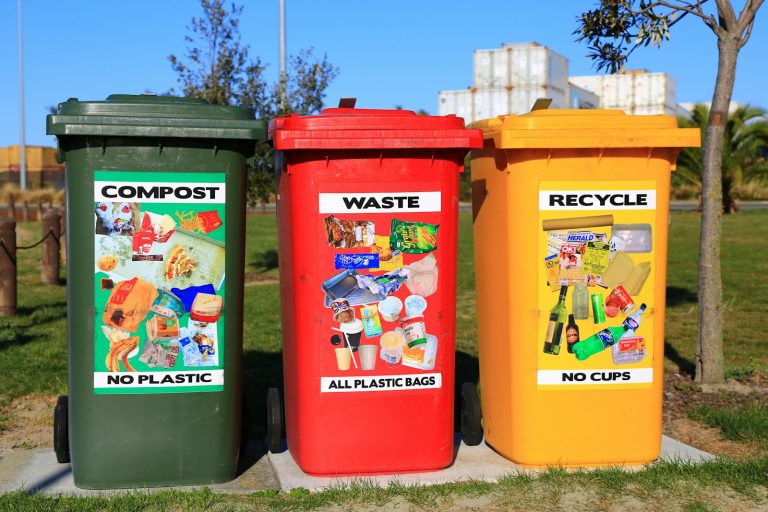Electronic devices have become indispensable in our daily lives, but their disposal presents serious health risks. The improper handling of electronic waste, or e-waste, exposes communities to toxic materials that can have long-term consequences. As a leader in e-waste management, Computer Recycling is dedicated to mitigating these risks and ensuring the safe disposal of discarded electronics.
The Toxic Components of E-Waste
E-waste contains hazardous substances such as lead, mercury, cadmium, and brominated flame retardants. When these materials are released into the environment through improper disposal methods, they pose significant health hazards to humans. Communities near landfills or informal recycling centers often bear the brunt of these dangers, facing exposure to harmful chemicals.
The risks are further exacerbated by the growing volume of e-waste. With the rapid pace of technological advancement, older devices are discarded at an alarming rate. The sheer scale of e-waste amplifies the potential for human exposure to these toxic materials, making the need for safe management practices more critical than ever.
Health Risks from Lead and Mercury
Lead and mercury, common components of e-waste, are highly toxic to humans. Lead exposure can damage the nervous system, impair cognitive development in children, and cause kidney damage. Mercury, on the other hand, is a neurotoxin that can affect brain function and lead to developmental disorders. When e-waste is burned or improperly dismantled, these substances are released into the air, soil, and water, increasing the risk of exposure.
Chronic exposure to these materials has long-term consequences. Pregnant women and children are especially vulnerable, as these toxins can interfere with developmental processes. In some cases, exposure to even small amounts of lead or mercury can have irreversible effects.
The Impact on Vulnerable Communities
Improper e-waste disposal disproportionately affects vulnerable communities, often in developing countries. Informal recycling operations, where workers dismantle electronics without protective equipment, expose individuals to dangerous levels of toxic materials. This exposure can lead to respiratory problems, skin conditions, and other health issues. Computer Recycling’s commitment to responsible e-waste management ensures that all materials are processed in facilities that prioritize safety and environmental protection.
Moreover, the economic disparity in affected regions means that healthcare systems often struggle to address the health crises caused by e-waste exposure. Organizations like Computer Recycling not only mitigate the problem at its source but also advocate for stronger regulations to protect vulnerable populations.
Air Pollution and Respiratory Issues
Burning e-waste is a common practice in informal recycling sectors, releasing harmful chemicals into the air. This practice contributes to air pollution, which can cause respiratory problems such as asthma, bronchitis, and even lung cancer. The toxic fumes released during burning also contribute to global air quality degradation, impacting populations far beyond the immediate area.
The cumulative impact of these practices creates environmental hotspots where pollution levels far exceed safe limits. Such areas highlight the need for international action and stricter controls on e-waste disposal.
Protecting Future Generations
The health risks associated with e-waste are not limited to direct exposure. Toxic substances can accumulate in the environment, entering food chains and water supplies. This long-term contamination affects not only current populations but also future generations. Computer Recycling’s efforts to safely manage e-waste help reduce these risks, promoting a healthier and more sustainable future.
Proactive measures, such as regular audits of recycling practices and investments in safer technologies, are essential to mitigating these risks. Computer Recycling’s leadership in implementing such measures sets a standard for others in the industry.
The Importance of Awareness
Raising awareness about the health risks of e-waste is crucial for driving change. Many individuals and businesses are unaware of the dangers posed by improper disposal methods. By providing educational resources and accessible recycling solutions, Computer Recycling empowers communities to make safer choices.
Government and industry partnerships further amplify the reach of these awareness campaigns. By aligning efforts, stakeholders can ensure that the message reaches broader audiences, encouraging widespread adoption of safer practices.
Leading the Way in Safe E-Waste Management
Computer Recycling’s comprehensive approach to e-waste management addresses both environmental and health concerns. Their advanced processes ensure that hazardous materials are safely extracted and recycled, preventing exposure to toxic substances. By choosing Computer Recycling, businesses and individuals can contribute to a safer, healthier world.
Their commitment extends beyond processing materials. Advocacy for stronger regulations and the development of safer recycling technologies are key pillars of their mission. These efforts underscore the importance of responsible industry practices in protecting human health.
Taking Responsibility for a Safer Future
The unseen dangers of e-waste highlight the urgent need for responsible disposal practices. Organizations like Computer Recycling play a vital role in protecting human health and the environment. By partnering with leaders in e-waste management, we can minimize health risks, safeguard vulnerable communities, and pave the way for a more sustainable future.
Every action, from proper disposal of a single device to supporting systemic changes, contributes to a healthier planet. The collective effort of consumers, businesses, and organizations like Computer Recycling can create lasting change, ensuring a safer environment for generations to come.



0 Comments